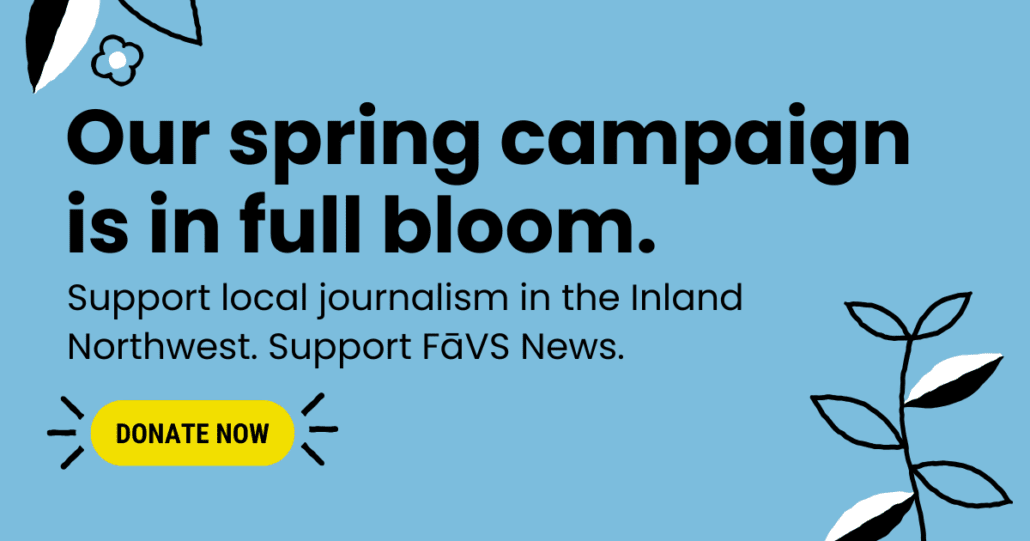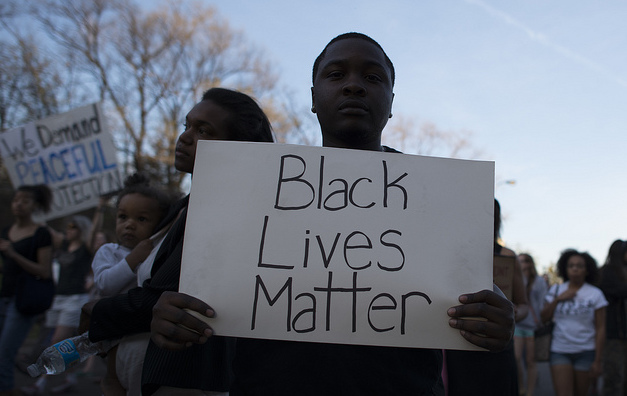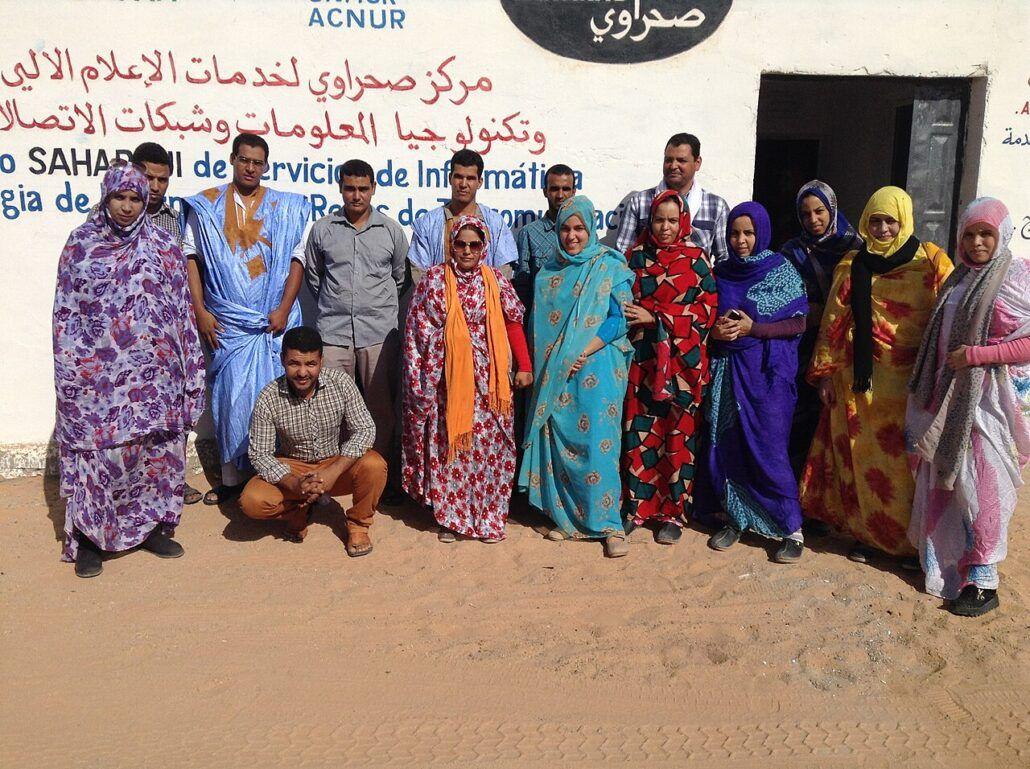Gaza’s tragedy is a call to action we cannot ignore
Guest Commentary by Elizabeth Backstrom
“At the very moment that they are thanking God for the enjoyment of civil and religious liberty, and for the right to worship God according to the dictates of their own consciences, they are utterly silent in respect to a law which robs religion of its chief significance and makes it utterly worthless to a world lying in wickedness.”
Frederick Douglass, “What to the Slave Is the Fourth of July?”- 1852
“It’s terrible for me to live in a time where I have nothing to say to human beings except, ‘Stop killing.’ There are other beautiful things that I would love to be saying to people. There are other projects I could be very helpful at. And I can’t do them. I cannot. Because everything is endangered. Everything is up for grabs. Ours is a kind of primitive situation, even though we would call ourselves sophisticated. Our plight is very primitive from a Christian point of view. We are back where we started. ‘Thou shalt not kill’; we are not allowed to kill. Everything today comes down to that — everything.”
Daniel Berrigan, from the stand at the trial of the Plowshares Eight group – 1981
I am usually a person who has quite a lot to say about things. I channel that energy into writing for work and pleasure, and also for a kind of soul exorcism. Many nights when I cannot sleep I’ve gotten up and written something down because I can’t sleep until I speak.
The first time I read Joan Didion’s “On Keeping A Notebook,” I felt completely understood for the first time in my life.
“Although I have felt compelled to write things down since I was five years old, I doubt that my daughter ever will, for she is a singularly blessed and accepting child, delighted with life exactly as life presents itself to her, unafraid to go to sleep and unafraid to wake up,” Didion wrote in her 1968 essay. “Keepers of private notebooks are a different breed altogether, lonely and resistant re-arrangers of things, anxious malcontents, children afflicted apparently at birth with some presentiment of loss.”
Over the last two years that impulse has failed me almost completely. Months have gone by without writing. Didion claims the main reason we write things down is to remember. However, that is only the beginning. The real reason people write things down isn’t to remember what happened, but to learn the contours of ourselves.
It turns out I am quite a talker about everything except the things that matter most. I believe a subconscious part of me does not actually want to remember the past several months, so they have gone unwritten. They feel like an unhealed wound, something I can’t touch without extreme pain. It is not only events themselves that cannot be discussed, but the complete and utter failure the few remaining foundations I thought mattered. That’s something I’m still coming to terms with.
I’m talking about the genocide in Gaza.
The privileged nature of this pain does not escape me, yet it persists. More than 18 months have passed since Oct. 7, 2023, and this is the first time I am publicly or privately writing about it in detail. In my personal life I have not been inactive, using my platforms to share information, donating and protesting. This feels largely futile but it is all I can think of to do.
Representatives have ignored my calls and emails, and friends and family have been either noticeably silent, or sympathetic but paralyzed. Those of us who are aware feel powerless to address the clear crimes against humanity we see occurring every day with the enthusiastic sanction and funding of the United States and our faith communities. Those who are not aware seem determined to continue in that ignorance or apathy. I’m unsure, depending on the day, which is more depressing.
To many readers, especially if you are not a member of a favored group, this is a familiar story. It is familiar to me, but never in my lifetime has the system failure seemed quite so complete.
Previously I have seen other progressive activists fighting and despairing with me. For example many people protested the Iraq War, although it was extremely unpopular to do so after Sept. 11. Many people joined the Black Lives Matter movement after the events in Ferguson, Missouri.
This is not that moment.
Virtually no one other than Palestinians themselves and a few student protestors in the United States have been willing to stand up for Palestinian rights over the past year, to the point of actively changing something in their behavior to address the issue, let alone putting themselves at risk for the cause. This, even more than the actual violence, is the cause of my grief. I don’t understand how we can see in such detail the humanity in others and just … keep on living, as though it doesn’t matter. How does this knowledge not break our every waking moment into grief, depression, action and rage?
As the months have passed I’ve spent many sleepless nights thinking of both the immediate and the yet to come. I often wonder how this action and inaction will affect us in five years, 10 or 20.
I think about the war machines we’re testing in Gaza and the surveillance technology we’re perfecting on the southern border. I think of the way armies use water as a weapon to keep populations controlled, and I wonder how much longer we can fool ourselves into thinking we’re not one community with the same list of concerns. This sounds fringe, but it’s merely practical. The calculus of limited resources isn’t difficult math, and it’s not in the favor of the 99%. We ignore this trajectory at our own peril. Eventually it will come for us.
I’ve been doing one other thing with my time besides not sleeping. I’ve been thinking a lot this year about Gilles Devers. You’ve probably never heard of him. He wouldn’t mind. Six months ago, I hadn’t heard of him myself. Devers, a nurse by training who went into law late in life, is a lawyer known in human rights circles for helping the Palestinian cause for decades.
The Sahrawi people know him. You probably haven’t heard of them either. They are famous for not being famous. The Sahrawi refugee camps, also known as the Tindouf, are a collection of refugee camps set up in Algeria in 1975 for people fleeing from Moroccan forces during the Western Sahara War. The European Commission calls them the forgotten refugees.
Exact numbers are not known, but anywhere from 90,000 to 170,000 refugees are estimated to be living in one of the most long-lasting camps in the world. In addition to his work for Palestinian rights, Devers acted as a lawyer for the group.
Devers died Nov. 26, five days after helping the International Criminal Court (ICC) issue arrest warrants for Israeli Prime Minister Benjamin Netanyahu and former Defense Minister Yoav Gallant for war crimes.
Throughout his life Devers was a staunch advocate of justice for Palestinians, playing a key role in the legal battle to bring Israeli leaders before international courts for their actions against Palestinians.
“It is clear for me that in the situation of Palestine, we have all the criteria of the case about genocide,” Devers told Al Jazeera when the ICC issued arrest warrants. “Governments must choose which camp they are on if they support human rights or genocide. They cannot give speeches about international law and human rights and then accept Israel’s attack without doing nothing,” he added.
He passionately argued that the case for genocide against Palestinians was clear, insisting that the international community had an obligation to intervene.
On the day the warrants were issued, he told his son: “Now I can die in peace.”
At his funeral, the President of the Sahrawi Republic said they plan to award Devers the Highest Honor of International Solidarity in recognition of his aid over the years, and the Sahrawi refugees planned to hold a second funeral for him at the refugee camp among the friends he had made there.
When he died, very few people had heard of him, and he’ll probably never be world famous. Yet he decided to challenge a man with the backing of the United States and the Israeli army, simply because he felt it was the right thing to do.
As a lawyer he could have charged $600 an hour for his fees, but he spent extra time helping people in a desert refugee camp. How starkly different from those who have everything, yet choose to do nothing. Or worse, who use their vast power to do harm to the most innocent simply because they can.
History is full of people like Gilles Devers; the unknown person who set a thing in motion or who were part of a bigger cause, who might never be remembered by anyone other than their closest friends or family in 30 years. That doesn’t mean their contribution means nothing: In fact without them, most of history’s greatest moments would have never happened.
The only way to guarantee that nothing happens is to do nothing. I have thought a lot about him when I can’t sleep because he reminds me I have power. That small things matter. That my actions matter even if they help only one person. That isn’t much, but right now it’s all I have.
Devers is incredibly inspiring, but ultimately, he’s just one regular guy. That’s what makes his story powerful. He’s not anyone famous or exciting. He’s just a nurse who became a lawyer working with a people no one has ever heard of, who decided one day he’d had enough of people bullying others and decided to do something about it.
It’s important to remember the balance, no matter how intimidating or intractable the situation seems. You, one person, are not required to rectify decades or centuries of systemic injustice by yourself, no matter how the news makes you feel. You cannot defeat an army. It’s understandable to feel intimidated by the idea of doing so.
I believe most people start with the idea of doing this, rightly feel appalled at the size of such a task and give up doing anything at all. This is extremely unfortunate because that’s not how change happens. It’s not how it’s ever happened.
Our culture and our minds are so familiar with Western individualism that we don’t think of other solutions. You don’t have to do everything. Doing even one thing can be incredibly powerful.
Part of our problem is also that we have “savior syndrome.” We are waiting for our white knight to come along and fix our problem. We don’t understand how power works, often seeking individual solutions to collective problems. We’re fed engaging narratives about heroes and villains and get the idea that this is how you defeat the one bad boss.
Moreover, if you haven’t done it in two hours, you’ve failed. Instead, we should hold two things to be true. System change is often slow, complicated and painful, and it’s okay to hold out for what we actually want and believe. This can happen and has happened.
Much of the practical knowledge of how to do this has been lost. What remains can be found in books on community organizing and in the history of things like the labor movement, as well as in the oral knowledge and experience of community activists from movements like Act Up.
There are books written about power and how to use it ethically and effectively to accomplish your goals. It’s not something only rich businessmen have. One of my favorites, called “Understanding Power,” which is free and is a book everyone should read, says this about the savior theory:
“Look, part of the whole technique of disempowering people is to make sure that the real agents of change fall out of history, and are never recognized in the culture for what they are. So it’s necessary to distort history and make it look as if Great Men did everything. That’s part of how you teach people they can’t do anything, they’re helpless, they just have to wait for some Great Man to come along and do it for them.”
The context of that quote is that someone is asking the author, Noam Chomsky, about Martin Luther King Jr. and Rosa Parks. He’s telling the questioner that both these people came from a large organizing movement that took years to build, which is part of what helped them succeed in their goals.
He’s correct, and it’s also correct to feel as I’ve felt the past 18 months, which is deep rage and despair that we aren’t doing something right now to end the violence. Listen to that voice, the one inside saying these things are wrong. That they should not go on one more second. When that stops, you’ve lost something vital. That’s part of the difficulty of this moment. Lasting change usually takes time, but it does not and should not mean morally compromising yourself at vital moments.

“This is not permitted: that I look upon the world and insist that I see what I see,” Daniel Berrigan said in his poem “Prophecy.” Berrigan was a Catholic anti-war protestor and pacifist later known for his participation the Catonsville Nine and Plowshares Eight groups protesting the Vietnam War and nuclear arms. He used his platform, faith, poetry and writing to speak out strongly against war and violence for most of his life and went to jail many times for his beliefs.
There is a reason this genocide deeply conflicts with your sense of right and wrong, and that is because it is wrong. I try to rarely say this and keep an open mind on most issues, but this is one of those times. Your rage is justified and your power is real. It’s okay to be angry. This is not normal.
I believe those relentlessly normalizing these things, telling you to go shopping or just watch TV or ignore the changes in the world because you can’t help anyway, are the ones in the wrong. Our culture is more comfortable with distant war than with anger and conflict at home about these actions, and that is part of the problem.
Abolitionist William Lloyd Garrison said in 1833: “How, then, ought I to feel and speak and write, in view of a system which is red with innocent blood drawn from the bodies of millions of my countrymen by the scourge of brutal drivers . . . My soul should be, as it is, on fire. I should thunder, I should lighten, I should blow the trumpet of alarm long and loud. I should use just such language as is most descriptive of the crime.”
It may feel like you are powerless or overwhelmed or not useful, but this is a lie. This is something people with more power than you want you to believe so that you never start anything useful.
The truth is that Dr. Seuss was right, you can actually move mountains. It’s a collective effort, but you can. If we get past the idea that we have to be Gandhi or Dr. Martin Luther King Jr. and realize both these people built on the collective efforts of thousands, we can change the world.
That is a truth people don’t want you to know. So,of course, you should believe it and tell as many people as possible.
The views expressed in this opinion column are those of the author. They do not necessarily reflect the views of FāVS News. FāVS News values diverse perspectives and thoughtful analysis on matters of faith and spirituality.













Thank you for bringing together quotes from anti-slavery and anti-war activists to voice your opposition to the destruction of Gaza and slaughter of Palestinians, How do we make our voice heard?
Hi Walter,
Thank you for reading. There are many ways to speak out. I like to say we all have either time, money, networks or physical labor/presence and many of us have multiple of these. I’m not sure what you’re already following so I’ll throw out a few groups, apologies if they’re duplicative.
Depending on your ability to give $$, risk tolerance etc you may be able to donate, attend a direct action or strike, protest, and raise awareness through your in person or online networks. You can support Palestinian authors by buying books and boycotting companies that support the IDF specifically and war in general.
I follow the groups Code Pink, PAL Action, Veterans for Peace, War Tax Resistors, Eye on Palestine, Students for Justice in Palestine, Jewish Voice for Peace, Boycott Divest and Sanction (BDS), No Tech for Apartheid and the writer Caitlyn Johnstone. Locally in Spokane the group PJALS is outspoken about Palestine and well worth support.
I have more money than time right now, so I donate more than volunteer. I give to Doctors Without Borders and Operation Olive Branch as well as families directly in Gaza through go fund me accounts vetted through OOB. You can also contribute to bail funds for protestors doing direct action if you support them but don’t think you can afford to be arrested.
I am not much of an authority on the subject so I always try to encourage people to find journalists and activists actually from Gaza as well and follow them on social media to see what they ask for.
Thank you!
Liz
This is so powerful. And thought-provoking. But more than that, a call to action I will begin by sharing your message on my social media. Thank you for writing this!